History made as Indigenous voice to parliament edges closer, but division is still rife
The floor was set for a historic moment in the Senate with the passage of the referendum legislation, but division was on full display.
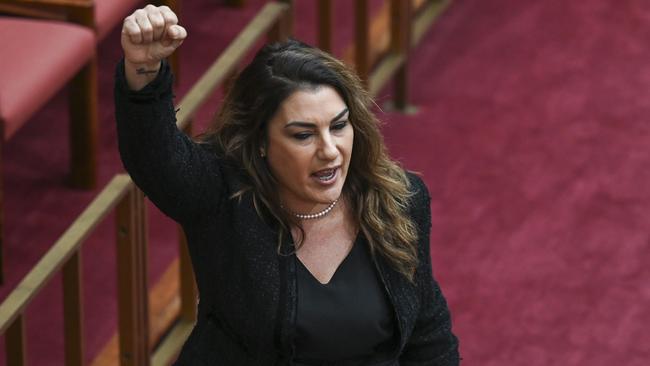
Labor had been preparing for a historic moment in the Senate with the passage of the bill to set up a referendum on the Indigenous voice, but any sense of history was quickly and repeatedly overshadowed by a divisive debate.
Indigenous leaders and young people lined the seats of the public galleries on Monday.
Indigenous Australians Minister Linda Burney was on the floor of the chamber to watch proceedings and was hugged by colleagues as the Senate bells rang to signal the start of the sitting day.
The government had known opposition legal affairs spokeswoman Michaelia Cash would make a “rare” third reading speech on the Constitution Alteration Bill.
But she was just the first cab off the rank.
One by one, opposition Indigenous Australians spokeswoman Jacinta Nampijinpa Price, independent Victorian senator Lidia Thorpe and One Nation leader Pauline Hanson stood to deride the voice. There were moments of ugliness.
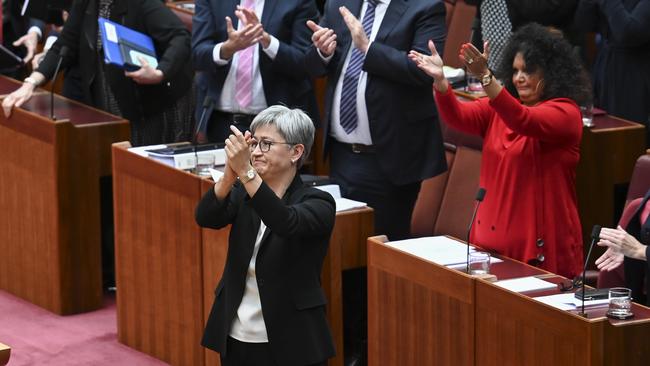
“Just because you can say that you’ve had a connection with this land for 65,000 years, I don’t care,” Senator Hanson said.
“Just because you’ve got your cave paintings and your Dreamtime, and you have your connection to your land, what about my connection to this land? What about the farmers?”
And Senator Thorpe showed what one end of the debate will pursue, congratulating the government on its “assimilation day” as she embarked on a long tirade against the “tokenistic” voice.
“Who’s going to listen to a token voice? You, just you? Do you want the voice to tell you that you need to stop killing our people?” Senator Thorpe said.
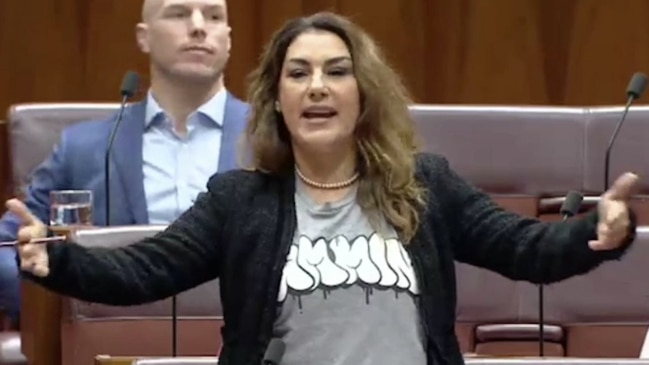
“Why are we begging like paupers again to go into a white, racist, colonial Constitution that was set up to deny everything that we are?”
There were concerns raised in the chamber, including by Senator Hanson, that have been voiced widely around the country about what the independent advisory body would do and mean to Australians.
Senator Nampijinpa Price said if the referendum on the voice was successful, Australia would be divided forever. She asked Australians to look at the route of the government’s proposal for a voice.
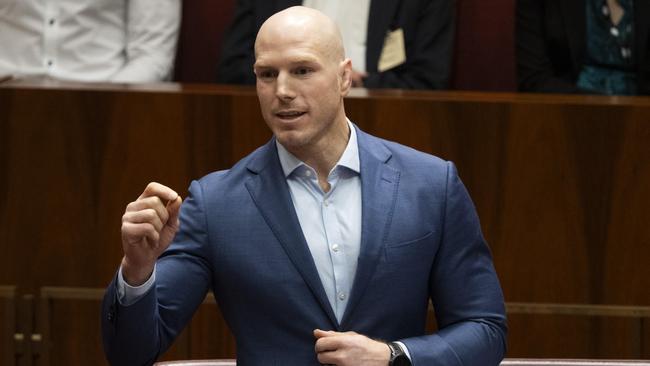
“Ask themselves if they truly believe that this is the answer? Will an extra layer of bureaucracy and red tape do anything more to help Indigenous Australians? ... The Prime Minister wants us to blindly trust him to allow his blank cheque – he cannot guarantee anything,” she said.
From the Yes camp, Greens First Nations spokeswoman Dorinda Cox, independent ACT senator David Pocock and government frontbenchers Malarndirri McCarthy and Murray Watt stood to defend the voice and the “very simple request” by Aboriginal Australians to be recognised in the Constitution through the advisory body.
Senator Watt, the Agriculture Minister, said the Senate had been given a taste of what was to come from the No campaign in the early hours of Saturday during the final stages of debate.
“We were asked who Australia’s first peoples were, even though it was set out in the very same sentence of the constitutional amendment. We were asked if these first peoples really are disadvantaged when the facts are before our eyes,” he said.
“We were even asked around 4am if the voice would impact on Melbourne’s Suburban Rail Loop. At least we learned the nature of the scare campaigns that we will see in the next few months. But despite all that, I’m confident that Australians won’t be distracted and misled by that ... dishonesty.”
History was made on Monday but, in the Senate at least, the government’s push for the voice was blighted.
More Coverage
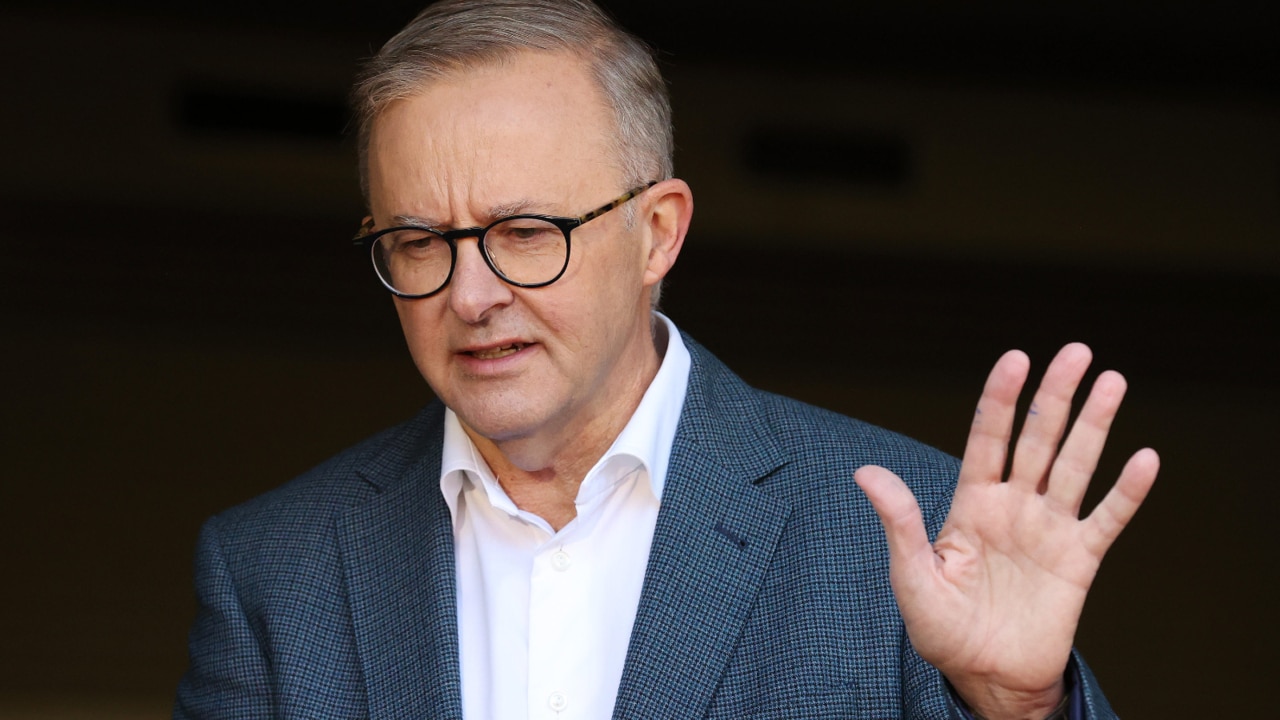


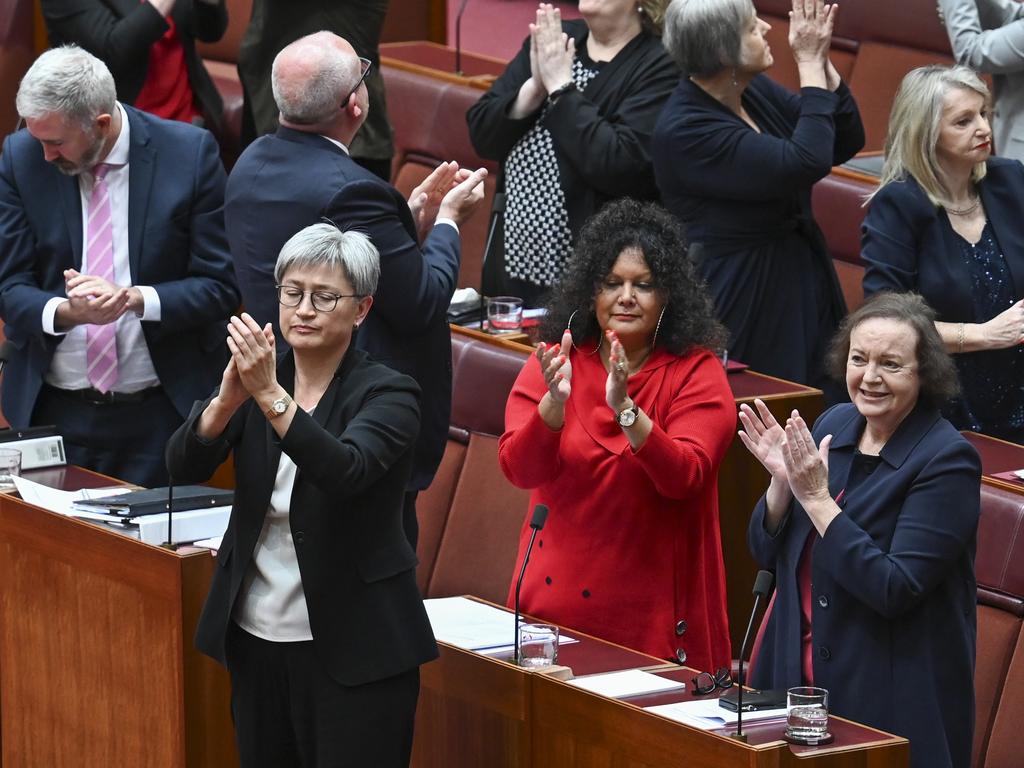


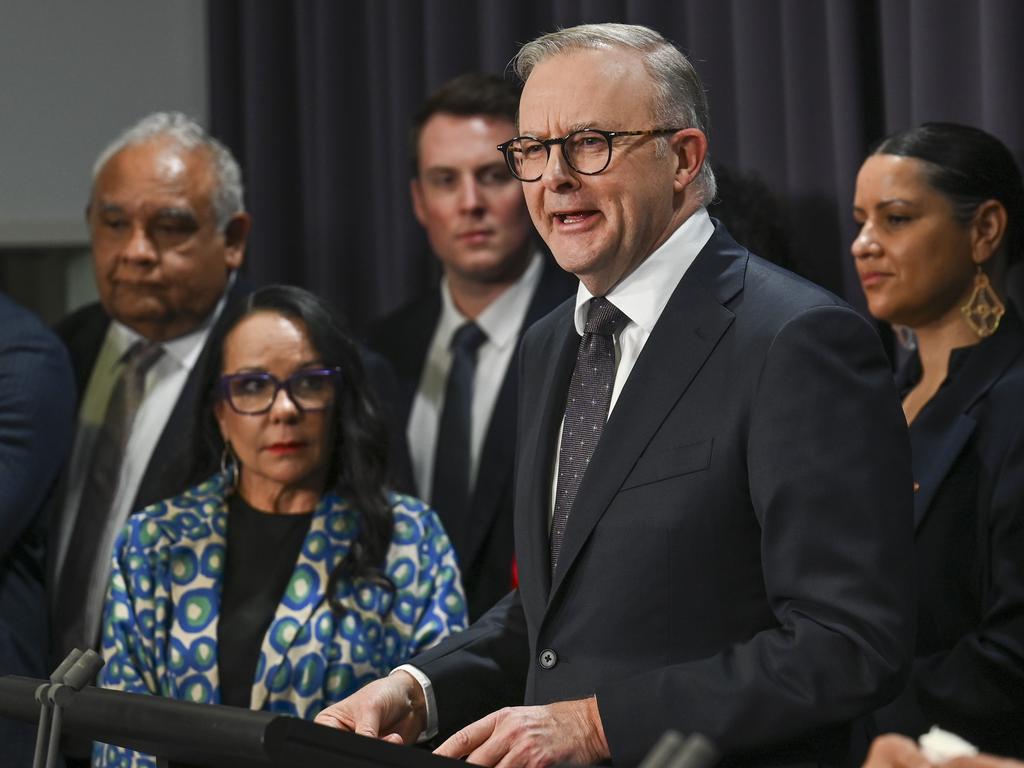


To join the conversation, please log in. Don't have an account? Register
Join the conversation, you are commenting as Logout